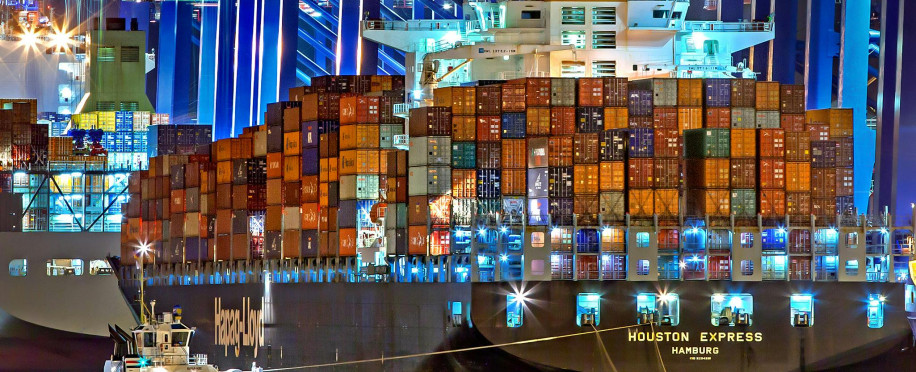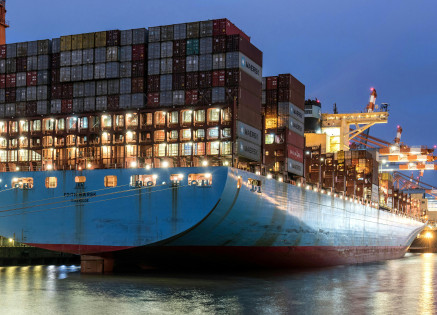Copyright © 2026 lmitac.com All Rights Reserved. Contact - Terms and Conditions - Privacy Policy - Quality Policy - Become an instructor - Vacancies - Sitemap
London Maritime Academy is a trade name for London Premier Groupversion: 2.9.0
London Maritime Academy is a trade name for London Premier Group

Posted on : 8/26/2024, 4:07:15 PM
Last Update : 8/26/2024, 4:07:15 PM
Welcome aboard the bustling world of container terminals! These essential global trade hubs play a crucial role in the complex logistics of moving goods from one corner of the globe to another. However, like any busy port, container terminals face their fair share of challenges. Whether it’s keeping up with the ever-increasing demands of international shipping or adapting to new technologies, the road ahead is both exciting and full of hurdles.
So, let’s dive into the key challenges and innovations shaping the future of container terminal management.
When it comes to the management of a container terminal project the problems are as turbulent as the ocean is during a storm. Bulk cargo, heavy storms, the nuances of intermodal transport, the list goes on.
Here are some of the largest issues that marine operators must navigate to ensure efficient transportation:
Due to the growth of e-commerce, container terminals are handling an extraordinary amount of traffic. Such a rise can cause traffic, time wastage, and complicate the consumption of available resources.
One of the main challenges in today’s maritime industry is the lack of manpower, most experienced workers are retiring and the younger generation is not willing to work on docks. This may lead to high operational pressure and a longer time for the turnaround of the ships.
Container terminals face the problem of adaptation to new technology as these arise in the market. Automation is one thing, digitization quite another, and it is vital to follow the trends and remain relevant.
Environmental issues are now a highly important topic of discussion across all international ports and this has made container terminals embrace the practice. It is interesting to note that there is a growing demand on every seaport to minimise their carbon impacts and provide sustainable transport.
The outbreak of COVID-19 clearly showed the weakness of supply chain management and containerisation in the shipping industry. Disruptions are costly since they alter the cargo shipping schedules, add to operational costs, and complicate the management of containers and port services.
Wherever you're located, whether you work in a facility in the US (Los Angeles or Staten Island), South America, Tokyo, or Cape Town, these challenges happen worldwide and every operator in every location needs to master their response to them.
Moving onward, we can see that despite the hardship of these challenges, they can serve as a gateway to develop new and improved operating methods. One of the primary factors that can help address challenges and increase productivity is innovation. Let’s explore some exciting innovations making a significant impact:
Just picture a world where cranes and vehicles are intelligent and self-driven, transporting containers with flexibility and efficiency. Automation has become a great innovation in the management of container terminals to enhance safety and efficiency.
Nowadays, there are many features of AI that we can use at sea, AGVs and robotic cranes are entering many ports to replace manual handling and improve reliability. Robots will be providing the ideal service to consumers, planning direct routes, berthing vessels in the fastest way possible, and making sure freight is loaded and unloaded without any difficulty.
2. Advanced Data Analytics.
Container terminals have also adopted big data technology and analytics to improve vessel movement across berths as well as cargo storage. Through the use of big data, terminal operators can enhance the efficiency of operations, anticipate congestion, and even inventory levels. It results in more efficient and effective decision-making and consequently, better services being delivered to the customers.
In such a vast field of shipping and logistics, effective and clear communication is crucial. This means digital tools are being applied to link numerous actors, including shipping lines, terminal operators, and customs authorities.
If you’ve attended container terminal courses in London, you know that these platforms automate such processes, offer real-time information, and improve collaboration, meaning that these delays are greatly minimised, some facilities like California and other west coast ports have started to have their operations automated.
As the global focus shifts towards environmental conservation, more and more container terminals are going green. This includes using natural resources, proper disposal of wastes, and procurement of electric or hybrid equipment. In addition to being environmentally friendly, these innovations are very effective in saving costs in the long run.

Imagine stepping onto the dock of a container terminal in the early hours of the morning. Cranes tower overhead, and the robust sound of machinery hums in the background. It’s a dedicated and complex environment serving every user with precision and teamwork.
Here are some operational strategies that help container terminals achieve excellence:
Based on every single thing we've said so far, what do you think about container terminal challenges? What action do you think public and governmental bodies should take?
As we explore the key challenges and innovations in container terminal management, it’s clear that the maritime industry is navigating uncharted waters. Embracing technology, focusing on sustainability, and prioritising workforce training are just a few strategies that can pave the way for future success.